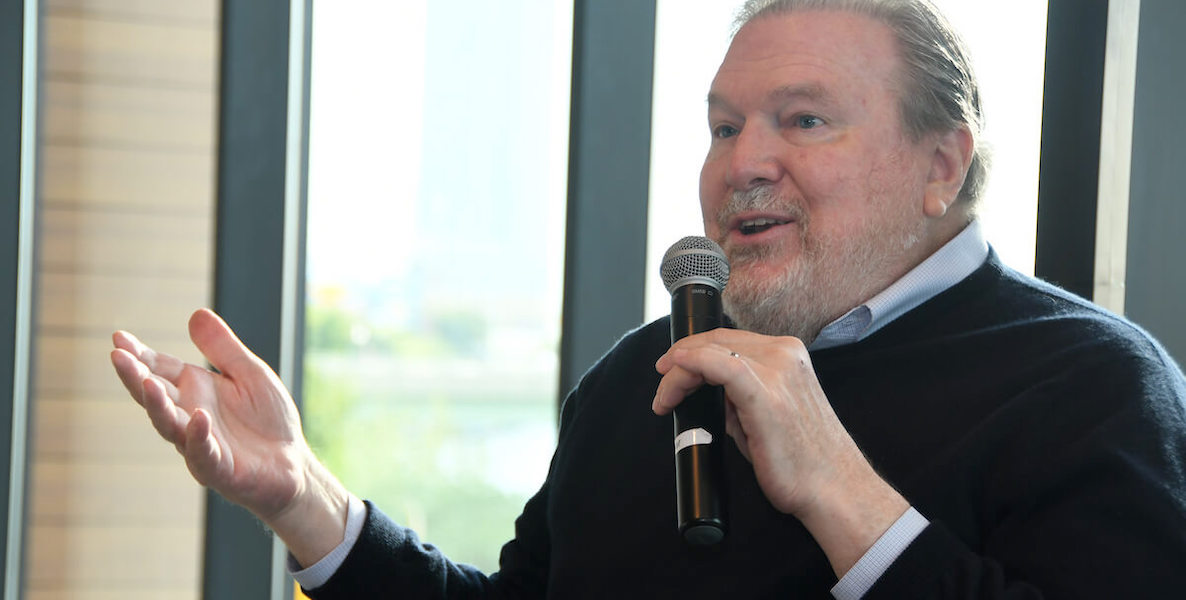Student debt weighs like a millstone around the necks of millions of Americans even years after they leave college. Among other harms, this debt defers home buying and household formation.
I’ve visited extensively across the United States in recent years to interview individuals and families about their financial lives and have been stunned by the pervasiveness of the student debt problem. There are 45 million student loans outstanding in the U.S. and in almost every family I encountered, one or more members of the extended family were struggling with student debt. It’s an inter-generational burden: a large number of parents are still making payments on their own student loans while co-signing on their children’s student loans.
Finding an equitable path to forgive a substantial portion of student debt — what we might call debt amnesty, or “jubilee” — will boost the American economy and help keep America competitive in a world where other nations, including China, have narrowed the gap with, or surpassed, the U.S. in higher education attainment.
Student loan totals grimly skyrocketed to $1.7 trillion in 2020, up from $1 trillion in 2012, propelled by the rising cost of education and the proliferation of for-profit colleges of questionable value. Just as recently as 2003, student loans totaled a much smaller $250 billion.
Finding an equitable path to forgive a substantial portion of student debt — what we might call debt amnesty, or “jubilee” — will boost the American economy, foster financial well-being, and help keep America competitive in a world where other nations, including China, have narrowed the gap with, or surpassed, the U.S. in higher education attainment.
A program of debt relief already exists for students who choose careers in the public or not-for-profit sector. In this program, if after students make 120 consecutive payments on their debt they can have the remainder of that debt forgiven. Additional models for tuition assistance and debt relief programs have come with military and Peace Corps service.
I propose that we take these precedents and introduce a new voluntary program that expands and embraces debt forgiveness beyond the not-for-profit sector if participants do substantial volunteer work for a qualified not-for-profit organization. I would shorten the existing public sector worker program from 120 months to 90 months to make it more feasible.
My plan is one important step removed from universal student debt forgiveness such as Senator Bernie Sanders advocates. It is an intermediate step between the current system, which crushes borrowers, and full-fledged student debt amnesty.
Therefore, if a student debt holder outside of the not-for-profit sector has made payments for 90 consecutive months, and has also done volunteer community service for an approved government or not-for-profit organization for 800 hours, then the remaining balance of that student’s loan would be forgiven by the government.
For most students this would bring substantial debt relief. But it’s one important step removed from universal student debt forgiveness such as Senator Bernie Sanders advocates. My proposal is an intermediate step between the current system, which crushes borrowers, and full-fledged student debt amnesty. It’s the option of an in-kind paydown of the loan.
RELATED: Richard Vague on how his debt Jubilee could save the economy
I endorse this proposal because the question of fairness inescapably and forcibly shapes the policy environment around student loans. Americans who did sacrifice to pay their debts or saved and worked to pay for college often object to complete student debt forgiveness. As they see it, a federal debt relief program, in effect, would penalize those who worked more to pay for college, those who put off higher education until they could afford it, and those who reliably repaid their loans. It would ask the two-thirds of Americans who didn’t earn a college degree to help pick up the tab for many who did.
And it’s wise to recall that an Obama-era debt relief proposal appalled many voters and gave rise to the Tea Party, fueled by this very claim of unfairness.
Whether or not we are persuaded by the fairness objection, it’s a widely held concern. In the current political environment we need well-reasoned proposals that square desirable economic and social goals — such as relief from private debt burdens that weigh on our economy — with pragmatic attention to fairness, and the resentment that a perceived lack of fairness all but inevitably produces. The perfect is the enemy of the good in student debt matters and others.
Addressing fairness means that this policy has a realistic chance of being enacted. And I would rather have some form of debt relief now than wait for complete forgiveness that may never become enacted at all.
Richard Vague is the Commonwealth of Pennsylvania’s Secretary of Banking and Securities. Prior to his 2020 appointment, he was managing partner of Gabriel Investments. Previously, he was co-founder, chairman and CEO of Energy Plus, an electricity and natural gas company. Richard Vague was also CEO and Co-founder of two banks and founded the economic data service – Tychos. He currently chairs The Governor’s Woods Foundation, a non-profit philanthropic organization. His new book is The Case for a Debt Jubilee (Polity Press, Nov. 22, 2021); the opinions expressed therein are his own and do not reflect the Commonwealth of Pennsylvania’s official policy. Learn more at richardvague.com.
![]()
RELATED
https://thephiladelphiacitizen.org/watch-history-of-u-s-business-with-ali-velshi-and-richard-vague/
Header photo by Sabina Louise Pierce




